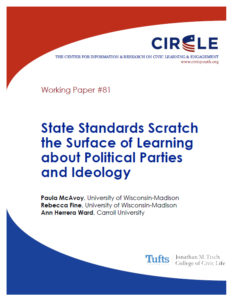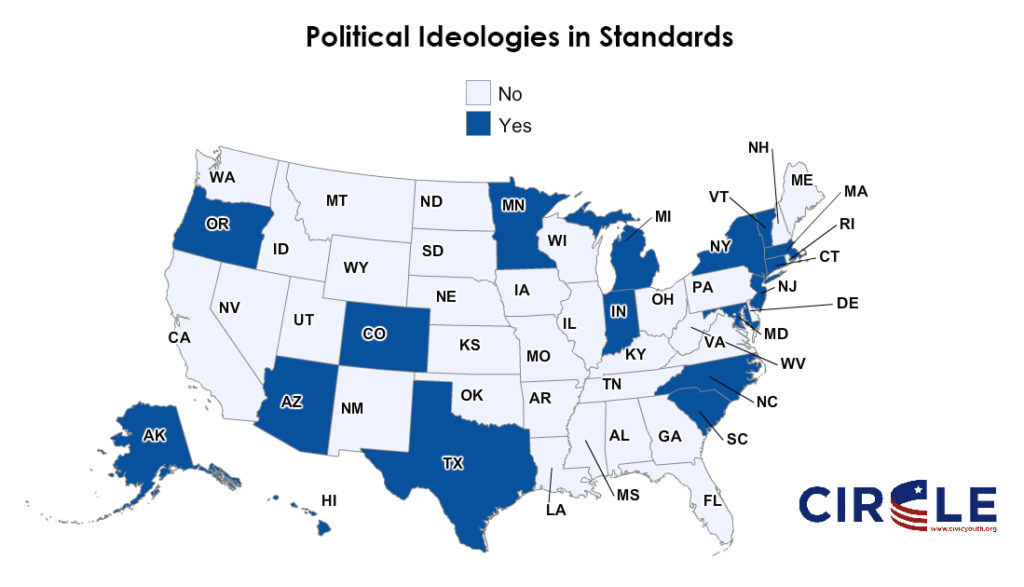Do States Require Students Learn about Political Parties & Ideology?
 Only eight states’ civic education standards explicitly require that students learn about the ideological underpinnings of the two major political parties, according to a new working paper from researchers at the University of Wisconsin-Madison and published by CIRCLE.
Only eight states’ civic education standards explicitly require that students learn about the ideological underpinnings of the two major political parties, according to a new working paper from researchers at the University of Wisconsin-Madison and published by CIRCLE.
In “State Standards Scratch the Surface of Learning about Political Parties and Ideology,” Paula McAvoy (UW-Madison), Rebecca Fine (UW-Madison), and Ann Herrera Ward (Carroll University) take a comprehensive look at the most recent social studies standards for all 50 states and find that most have far to go in order to provide the kind of robust civic education that allows students to understand and engage with American democracy as it works in practice.
Key takeaways include:
- While 43 states mandate that students learn about political parties, the relevant language usually promotes an oversimplified understanding of their role in contemporary democracy.
- When states mandate learning about political ideologies, it is almost always in a historical context.
- Only 10 states ask students to study controversial political issues in relationship to political parties.
- Just one state, Rhode Island, comes close to explicitly requiring that students explore where their own beliefs fit within the ideological-partisan landscape.
 Click the image above or go here to explore a CIRCLE interactive map of state civic education standards.
Click the image above or go here to explore a CIRCLE interactive map of state civic education standards.
Notably, no states met all four criteria that the authors identified as critical to educate students for informed engagement in electoral politics: understanding the role of parties, examining the ideological underpinnings of both major parties, mapping controversial issues onto the political spectrum, and considering where the students’ own views land on that spectrum.
This new research has important implications for teachers, who must go beyond the often inadequate standards to provide students with a complete and compelling education conducive to political engagement; for policymakers, who should seek to clarify and strengthen standards; and for the future of American democracy, while relies on informed and engaged citizens.
Read the full working paper: State Standards Scratch the Surface of Learning about Political Parties and Ideology
*****





